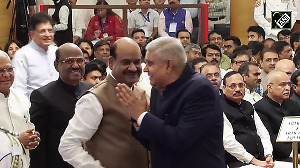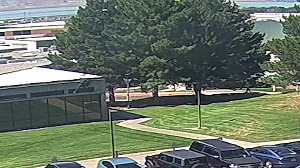The United Nations' rights body wants international monitors to be posted in Sri Lanka to stem breaches of humanitarian law.
The Human Rights Council also observed that the conflict in Sri Lanka has led to human rights abuses by both the government forces and the Liberation Tigers of Tamil Eelam.
Addressing the opening session of the Council, Commissioner Louise Arbour said Sri Lanka had descended further into violence with the rising death toll among civilians, scores of extra-judicial killings allegedly committed by the government security forces, the rebel LTTE and other armed elements. She said some 240,000 people have been driven from their homes since April.
On a cautiously optimistic note, Arbour points to significant positive developments in Nepal with the reinstatement of parliament, the naming of a prime minister and the installation of a new government, and a declaration of a ceasefire by parties to the conflict.
"As a result of these political and security developments, the human rights situation has improved significantly," she said.
"However, progress in Nepal is fragile. It is essential that all stakeholders remain committed to the peace process and that they respect human rights," she said.
About the condition in Sri Lanka, she said, "While LTTE abuses continue on a large-scale, human rights violations by State security forces, and the failure of the government to provide the protection of the rule of law to all its citizens also generate serious concerns."
Welcoming the government's public commitment to investigate these crimes, including the killings of 17 humanitarian workers of Action Contre la Faim, she warned that in too many cases investigations have failed to produce results and victims have been denied justice and redress.





